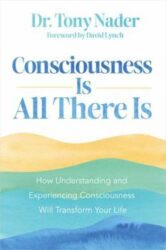Is Marriage a Path to Happiness?

It’s a debate that goes on endlessly—are marriages less or more happy than they were in the past? And what contributes to a happy marriage?
According to a new study by Eli Finkel and his fellow psychological researchers, reported in a recent article in the NY Times, the findings are as confusing as a Midwestern weather forecast. While the average marriage is less happy than the average marriage in the past, there are some marriages that are even more happy than ever before. It’s a bit of a divide between the loved and the loved not.
And the divorce rate increasingly appears to fall along economic lines, it’s not increased wealth itself that creates more marital satisfaction, the researchers say. It’s the fact that since 1980, many middle-class families have struggled with economic challenges, often working multiple jobs. This struggle to feed their families has resulted in less time spent together as couples, and according to their research, it is the time spent together that is the critical factor for a happy marriage.
In fact, since 1975, time spent enjoying fun activities together has decreased for both couples with kids and couples without kids, leading to a decrease in marital happiness for the average marriage.
One of the most interesting aspects of this highly nuanced article is the author’s discussion of the evolution of marriage, which he equates with the evolution of human consciousness described by Abraham Maslow’s “hierarchy of needs.” Finkel notes that Americans have moved through three stages of marriage—starting with the institutional marriage of past centuries, when a good marriage was expected to provide food and shelter, to the companionate marriage (1850-1965), which was expected to provide romance and companionship, to today’s self-expressive marriage, when couples expect marriage to bring self-discovery, self-esteem and personal growth, or “the mutual exploration of infinitely rich, complex and exciting selves.”
And herein lies the rub: couples have much higher expectations for marriage than ever before, but because of the fast pace of life, the intrusion of technology, increasing parental demands, and economic burdens, many couples aren’t able to spend the time or effort to realize those expectations.
But those who do invest more time into their relationship are happier than ever before because they are able to fulfill the expectations of the modern marriage and grow in self-actualization together.
Finkel cited additional research by the sociologist Jeffrey Dew showing that couples who spent “time alone with each other, talking, or sharing an activity” on a type of date night at least once per week were 3.5 times more likely to be very happy in their marriage than spouses who did so less frequently, and couples with a larger percentage of shared friends spent more time together and had better marriages.
I personally think the researchers are on to something—the couple that plays together stays together. When my husband and I married 33 years ago, we had different ideas about what would keep our marriage together. Like many women, I wanted to talk about our relationship and iron out differences with verbal discussions and affirmations. My husband wanted to focus on spending quality time together each week (biking, walking, traveling, eating out with friends). This would strengthen our marriage more than anything else, he felt, because then we would be growing in joy together. Rather than talking about a happy marriage, we’d be living it.
So we compromised and made time for both elements in our marriage—communication and spending quality time together. By planning “date nights” and other outings, by consciously making time to do fun things together, it seems like the small differences go unnoticed and the shared the experience of happiness binds us together.
Meditating together has also been a huge factor in our marital harmony. Both of us practice the Transcendental Meditation technique, and there’s no doubt that when you take time to rest, recharge and refresh twice a day, your relationships can’t help but improve.
Stress is known to be a major cause of marital discord—and the TM technique is the most effective stress-reduction technique available, according to peer-reviewed research. When you start the day with the clarity of mind that meditation creates, you are naturally more successful on your job or whatever tasks you need to accomplish during the day. In the early evening when you take time to meditate again, dipping into that transcendental field of infinite energy, joy, and love, you come out feeling that the stresses of the day are behind you. You’re ready to devote your full attention to your home life, to enjoy the evening with your family and spouse.
And when you’re growing as an individual, unfolding your inner potential and experiencing transcendental consciousness each time you meditate, it takes a great deal of strain off your marriage. You don’t have the expectation that the other person is going to fill your cup full. Rather, you meet on the basis of inner fulfillment, and when two full hearts meet, there is a flow of happiness that is, indeed, extraordinary.
About the Author
Linda Egenes writes about green and healthy living and is the author of six books, including The Ramayana: A New Retelling of Valmiki’s Ancient Epic—Complete and Comprehensive, co-authored with Kumuda Reddy, M.D.
More Posts by Linda
- Tired and Burned Out? Transcendental Meditation Can Help: An Interview with Dr. Nancy Lonsdorf, MD
- Worried About the Future? Six Ways to Calm Your Anxiety
- What Do You Carry in Your Self-Care Tool Kit?
- Five Strategies for Family Caregivers
- From the Streets to College in Four Months: The Communiversity of South Africa Empowers Underserved Youth in Cape Town





